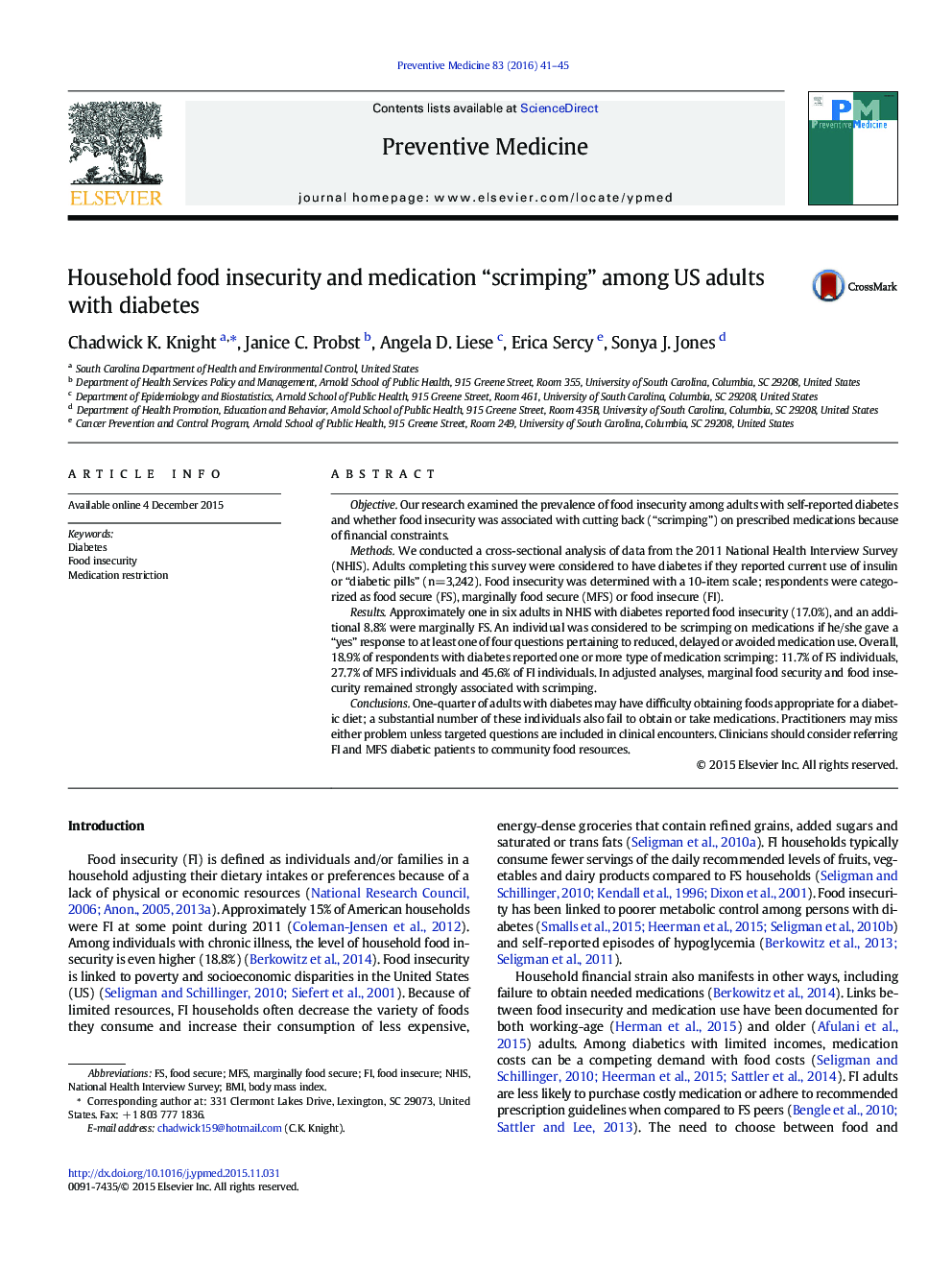| کد مقاله | کد نشریه | سال انتشار | مقاله انگلیسی | نسخه تمام متن |
|---|---|---|---|---|
| 6046143 | 1581631 | 2016 | 5 صفحه PDF | دانلود رایگان |

- Food-insecure individuals may lack resources for both healthy food and medications.
- Among diabetics, food insecurity may exacerbate acute and chronic disease symptoms.
- Food-insecure diabetics may need to choose between food and medication adherence.
- Physicians should encourage diabetics to participate in food-assistance programs.
ObjectiveOur research examined the prevalence of food insecurity among adults with self-reported diabetes and whether food insecurity was associated with cutting back (“scrimping”) on prescribed medications because of financial constraints.MethodsWe conducted a cross-sectional analysis of data from the 2011 National Health Interview Survey (NHIS). Adults completing this survey were considered to have diabetes if they reported current use of insulin or “diabetic pills” (n=3,242). Food insecurity was determined with a 10-item scale; respondents were categorized as food secure (FS), marginally food secure (MFS) or food insecure (FI).ResultsApproximately one in six adults in NHIS with diabetes reported food insecurity (17.0%), and an additional 8.8% were marginally FS. An individual was considered to be scrimping on medications if he/she gave a “yes” response to at least one of four questions pertaining to reduced, delayed or avoided medication use. Overall, 18.9% of respondents with diabetes reported one or more type of medication scrimping: 11.7% of FS individuals, 27.7% of MFS individuals and 45.6% of FI individuals. In adjusted analyses, marginal food security and food insecurity remained strongly associated with scrimping.ConclusionsOne-quarter of adults with diabetes may have difficulty obtaining foods appropriate for a diabetic diet; a substantial number of these individuals also fail to obtain or take medications. Practitioners may miss either problem unless targeted questions are included in clinical encounters. Clinicians should consider referring FI and MFS diabetic patients to community food resources.
Journal: Preventive Medicine - Volume 83, February 2016, Pages 41-45